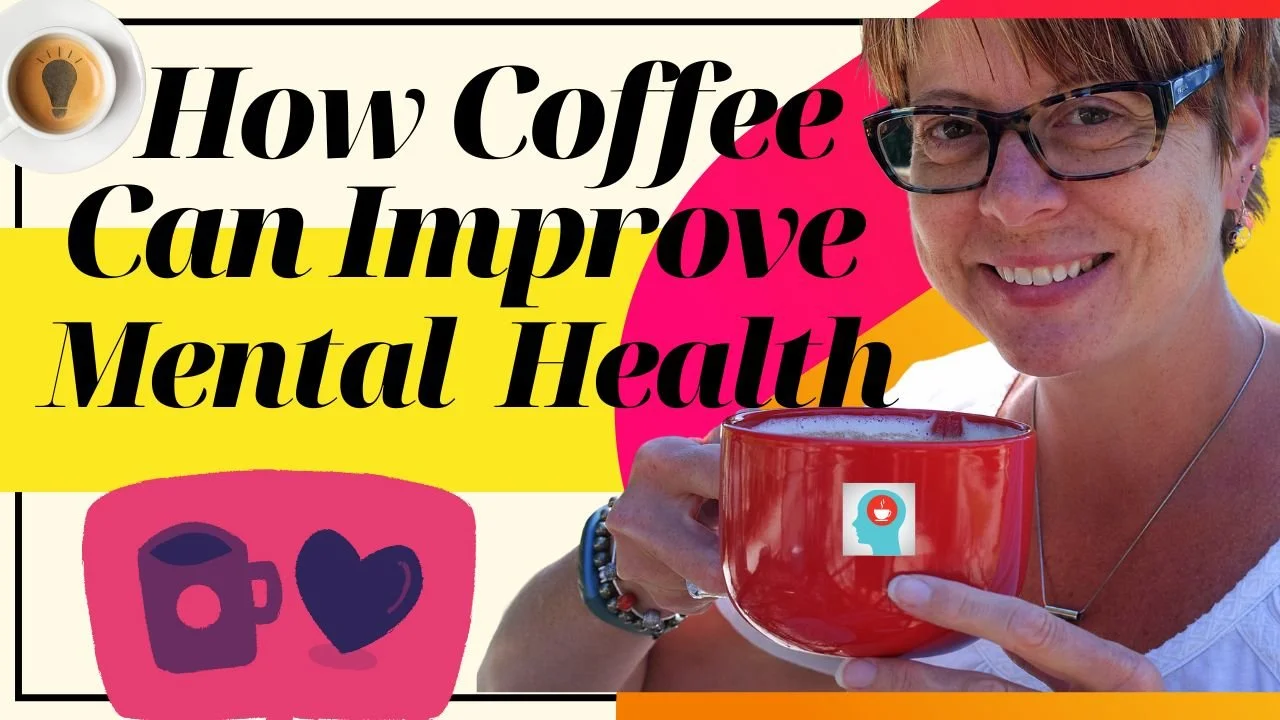How Coffee Can Improve Your Mental Health
Are you a coffee drinker?
Do you need coffee’s caffeine boost to help you get through the day? Or do you drink coffee because you enjoy the taste?
Though it’s true there are many health benefits to coffee, it’s also important to know that coffee isn’t for everyone. So let’s start at the beginning.
Coffee is one of the most popular beverages in the world. It has also been shown to have numerous health benefits. While most people drink coffee to get a caffeine jolt, in today’s blog, we’re going to explore how coffee can improve your mental health. That’s right, there are also many potential mental health benefits associated with coffee consumption.
Two main things make coffee great for your health: the caffeine and the antioxidants. Antioxidants are essential because they help protect your cells from damage (oxidative stress). In contrast, the caffeine in coffee can help improve mood, cognitive function and physical performance.
We will show in more detail how each of these affects you when talking about specific aspects of mental health.
It’s also important to note that the caffeine levels in coffee depend mainly on the type of coffee bean used and the way the coffee is brewed. For example, a shot of espresso has more caffeine than a cup of drip coffee. However, both types of coffee can positively affect your mental health.
And what about roast level? The roast level of coffee beans can affect flavour, so choose lighter or darker roasts depending on your personal preference. Both are equally good for you!
With that, let’s dive into some of these benefits.
Coffee can help you with depression
A large body of research has shown that coffee consumption can reduce the risk of depression. In fact, one study found that people who drank four or more cups of coffee a day were about half as likely to become depressed as those who didn’t drink any coffee.
There are several potential reasons why coffee might help reduce the risk of depression.
First, let’s consider its caffeine content. Caffeine is a stimulant that can improve mood by increasing alertness and energy. It can also help to improve focus and concentration. Caffeine has been shown to be an effective treatment for mild depression and can help to reduce the symptoms of depression.
Coffee also contains antioxidants. These substances can protect the body from damage caused by free radicals. Free radicals are harmful molecules that can cause cell damage and lead to disease or premature aging. Antioxidants help protect the body from the damage caused by free radicals and may help reduce the risk of developing depression.
While coffee may have some benefits for mental health, it is not a cure for depression. Caffeine can help improve mood in the short term, but it can also cause dependence and withdrawal symptoms. Antioxidants can help protect the body from free radical damage, but they do not necessarily reduce the risk of developing depression. If you are struggling with depression, it is important to seek professional help.
Coffee is a dementia fighter
Coffee has also been shown to improve cognitive function and reduce the risk of developing dementia. One study found that people who drank three or more cups of coffee a day were 65% less likely to develop dementia than those who didn’t drink any coffee.
There are a few reasons why coffee may help reduce the risk of dementia. Again we need to look at caffeine and antioxidants.
The caffeine in coffee can improve cognitive function and memory. It may also help protect the brain from damage caused by free radicals. Coffee is also a great source of antioxidants, which can help protect cells from damage.
Some studies have also suggested that coffee may help reduce the risk of Alzheimer’s disease, the most common form of dementia.
It’s important to note that these studies are observational, so they can’t prove that coffee causes any of these effects. However, the evidence does suggest that coffee may be beneficial for cognitive health.
Coffee is already known to be a preventative factor against mild depression, Parkinson's disease, and colon and rectal cancers.
Chris Kilham
You may also like
It was very useful to have an update, checking in on things I needed to ensure were in my routine. The tweaking and new recipes will definitely help me keep on task. The coaching on how to eat sensibly on the upcoming holiday is much appreciated.
Regards,
—David (British Columbia)
Coffee reduces stress
Coffee has been shown to help reduce stress levels. One study showed that those who drank coffee had a lower cortisol response (cortisol is a stress hormone) after undergoing a stressful task than those who did not drink coffee.
Another study found that coffee drinkers had a lower perceived stress level than those who did not drink coffee.
When caffeine enters the body, it blocks adenosine, a chemical that makes you feel tired. Caffeine also stimulates the central nervous system, the heart and muscles. This combination of effects can give you an energy boost and make you feel more alert. The increase in energy and alertness can help you cope with stress.
However, it’s important to act responsibly. Coffee is not some magical stress-reliever. If you drink too much coffee or are sensitive to caffeine, it can actually make your stress levels worse or cause an increase in blood pressure.
Coffee can boost productivity
When most people think of coffee, they think of the jolt of energy it can give them. And that’s true – caffeine is a powerful stimulant. But coffee doesn’t just provide a short-term burst of energy. It also has long-term benefits that can improve productivity.
One reason coffee can boost productivity is that it improves focus. Studies have shown that caffeine can help people focus on tasks and pay attention for longer periods of time. This is especially beneficial if you have a task that requires sustained concentration, such as working on a complex project or writing an important report.
Another reason coffee can be helpful for productivity is that it can improve your mood. The antioxidants and other compounds contained in coffee can have a positive effect on your mood and mental well-being. Feeling happy and positive can make it easier to stay motivated and focused on your work.
EMOTIONAL BENEFITS OF COFFEE
We’ve shown how caffeine and antioxidants in coffee can improve health and affect some major health conditions, but what about the emotional benefits?
Coffee is a social drink, typically taken with friends or as a treat. It can promote conversation and bonding and has even been shown to decrease social anxiety.
Coffee can also be a great pick-me-up when you’re feeling down. A study from the Journal of Affective Disorders found that people who drank four cups of coffee a day were less likely to experience feelings of depression.
Of course, coffee isn’t going to solve all your problems, and it’s important to find healthy ways to cope with stress and anxiety. But if you’re feeling a little down, a cup of coffee with a friend can definitely help.
Conclusion
Coffee has many benefits that can improve your health. These include reducing stress, boosting productivity and improving your mood. Coffee is also a great source of antioxidants, which can help protect cells from damage. So the next time you reach for a cup of coffee, remember all the ways it can benefit your health!
Of course, not all cups are created equal! It’s impotent to source quality beans from a good producer. And if possible, buy whole beans and grind them fresh yourself. This will ensure your cup of coffee is the freshest (and tastiest) possible. Doing so will also reduce the likelihood of mould or mycotoxins in your cup.
To learn more about the health benefits of coffee on your brain, check out our posts on the surprising health benefits of coffee - Part 1 and Part 2. There’s also an article I wrote asking the question if Coffee Drinkers Live Longer?
It’s also important to note that coffee intake is just one of the many factors that can affect mental health. You are health-conscious and know that eating a nutrient-rich whole foods diet, reducing stress, and getting enough sleep and exercise are all critical things to consider for improving your mental health and reducing disease risk. It’s not just about the coffee!
As always, we welcome your thoughts and value your feedback. Let us know what you think by dropping me a line or commenting below.
[Medical Disclaimer]
Please consult with your doctor(s) before starting any new mental or physical health improvement program. The advice I offer is not intended to replace that of your medical practitioner. I am not a medical professional, nor am I qualified to diagnose, cure treat, or prevent disease. The advice I provide on this website is intended for a broad and diverse audience, and as such, deals with general lifestyle concepts, not specific healthcare advice. This material disclaims any liability or loss in connection with the advice expressed herein.












